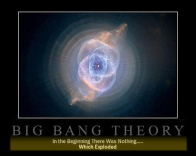Can Atheists Be Religious? Are there Religious Atheists?



by Austin Cline
Atheism and religion are often portrayed and treated as polar opposites; although there is a strong correlation between being an atheist and being irreligious, there is no necessary and inherent connection between the two. Atheism is not the same as being irreligious; theism is not the same as being religious. Atheists in the West tend not to belong to any religion, but atheism is quite compatible with religion. Theists in the West tend to be religious, but theism is compatible with irreligion.

So why does the confusion exist? Why do so many people seem to reflexively assume that atheists must necessarily be irreligious, if not anti-religious?
Quite simply, most religious belief systems (especially those dominant in the West) are theistic — they include belief in the existence of at least one and this belief is often a central, defining characteristic of that religion. It would be very difficult (and probably impossible) for a person to combine atheism with adherence to such a religious faith because doing so would require redefining the religion to such an extent that most members might not recognize it anymore.
This is likely the reason why you will even see some atheists assuming that theism and religion are so deeply intertwined that they won't bother to distinguish between the two, using the labels almost interchangeably. However, just because most religions we encounter incorporate theism, that shouldn't lead us to assume that all religions are therefore necessarily theistic. Just because atheism is incompatible with the sort of religion we are used to seeing doesn't mean we are justified in concluding that it's compatible with all possible religions.
Defining Religion
It would be incredibly ethnocentric if we allowed ourselves to define religion in general solely based on our encounters with a couple of specific (and closely related) religions like Judaism, Christianity, and Islam. There is a much wider and more varied religious universe out there than those three faiths represent, and that's just taking into account3 religious which exist today, never mind all the religions which have existed throughout human history. Religion is a human creation and, as such, it is just as varied and complex as human culture generally is.
For example, many forms of Buddhism are essentially atheistic. At most they regard the existence of gods as possible, but often they dismiss gods as simply irrelevant to the important task of overcoming suffering. As a consequence, many Buddhists not only dismiss the relevance of gods but also the existence of gods — they are atheists, even if they aren't atheists in the scientific, philosophical sense that many atheists in the West are.
In addition to old and traditional religions like Buddhism which are accessible to atheists, there are also modern organizations as well. Some humanists call themselves religious and many members of Unitarian-Universalism and Ethical Culture societies are also nonbelievers. Raelians are a relatively recent group which is recognized as a religion legally and socially, yet they explicitly deny the existence of gods, making them "strong" or "gnostic" atheists.
There has been some debate as to whether such forms of humanism truly qualify as religions, but what is important for the moment is the fact that atheist members themselves believe that they are part of a religion. Thus, they do not see any conflict between disbelieving in the existence of gods and adopting a belief system which they consider a religion — and these are, without a doubt, atheists in the Western sense of scientific, philosophical atheism.
The answer to the question is thus an unequivocal yes: atheists can be religious and atheism can occur in conjunction with, or even in the context of, religion.
 Article is LOCKED by author/seeder
Article is LOCKED by author/seeder







Just because atheism is incompatible with the sort of religion we are used to seeing doesn't mean we are justified in concluding that it's compatible with all possible religions.
—from the Article.
Frankly, I am not sure what this sentence is saying.
It all depends on what definition of 'religion' is being used.
Per Oxford:
Most people take 'religion' to be usage [1]
But if one chooses usage [3] then clearly there is not even a requirement of a God.
Even for [2] there is no necessity for a God (take Buddhism).
So ultimately you need to be clear on what you mean by 'religion'.
Hi TiG! Yeah, this author, writing for Thoughco.com, is something of a surprise to my understanding of what atheism is. So, I think to myself, maybe this article will make a great discussion.
Maybe, but I think it is misleading for anyone to define religion as something other than 'The belief in and worship of a superhuman controlling power, especially a personal God or gods.' as noted in usage one from Oxford (TiG @1.1). The other usages are legit, but not what most people think of when someone questions if an atheist could be religious. They are no doubt thinking of usage one (above).
Per usage one, a religious atheist is absolutely an oxymoron. No discussion necessary - it is a silly notion. No, there are no religious (usage one) atheists - it is impossible - it is a contradiction.
Your 1.1 points 1, 2, and 3 (specifically 2 and 3) may be something the author of the seed has in view. Therefore, I have included the remainder of the seeded content in the visible window above for all to see.
The writer clearly wants Westerners to broaden our understanding of what religion is apart from its theistic versions.
Why would an atheist want to be religious?
Why is it seen as advantageous or moral to be religious?
I am hoping to get some understanding through discussion of statements this writer of many atheism articles, Austin Cline, is making on Thoughtco.com.
What sort of understanding are you hoping to achieve? Why is it advantageous to be religious when organized religion is about thought control and ritual?
I am researching atheism. This information is written by Austin Cline.
I want to understand what atheists are saying about themselves (to others).
It is interesting that people who do not belief in god or gods and profess to live as freethinkers would still want some "controlling" influence over their lives. Moreover, rituals and the use of symbols develop through generational placement.
Not much.
I don't want any controlling influence in my life. My being a Humanist isn't a controlling influence in any way. It's merely a statement that atheists have opinions and a stance on many public issues, despite the fact that we do not believe in a god.
You pretty much see it all here on NT. Best I can tell, everyone here would technically be an agnostic atheist and thus they will all note that they are not convinced that there is a god. It is not very complicated.
Agreed 100%. The Humanist group that I am part of on Facebook probably has the dullest replies. Everyone agrees and then someone posts a sarcastic religious meme. Even the expected Facebook trolls don't bother.
The FSM group is the exact opposite. It's almost always a religious (bleep)storm.
So, you are surprised by this article's claim? What do you think of the group, Raelians?
I wonder if any religious-atheist on NT would step forward to help us understand his/her way of life (if currently a member).
Raelians are not atheists. They are looney tunes.
Are there any ‘religious’ atheists on NT?
You are surprised by this article's claim? Raelians, specifically do not believe in god and gods.
One wonders. Does Wiccan count? Honestly, I do not know. May be some one can share and make us all a little smarter!
How about Jainism? Any Jains in here?
Before I shut this out: It is amazing to me how much raw and mean-spirited commentary is spilled on these boards by men and women who want to diminish, mock, and demean religion—especially Christianity.
However, when it comes to discussing areas of knowledge where they 'plant' seeds, as you can see words can never express who they are!
It is a sad commentary, and unfortunately it speaks volumes to those willing to 'listen up.'
I have added the complete article to the visible section of the article above. Initially, I thought to make the display of this article more pithy by leaving off parts of it. On reflection, I can see it goes "hand and glove" with what the author is working to convey to readers.
The above is the full-account of the seeded content.
What would it be? Maybe a club or fraternal organization?
How about Raelians?
Which means they are not religious per the most common usage of the word: "The belief in and worship of a superhuman controlling power, especially a personal God or gods."
Not sure what you are looking for. It is not possible to believe in a god and be an atheist. You can call some atheists religious but only if you use a less common usage of the word - one that does not mean 'believe in a god'.
In short: there is no such thing as a religious atheist. One can use the word 'religious' to mean something other than the common meaning but what is there to discuss about that?
The Raelian Movement is a new religious movement and atheistic religion that denies the existence of true supernatural gods. It believes instead that various mythologies (particularly that of the Abrahamic God ) are based upon experiences with an alien race called the Elohim .
Source:
TiG, go figure. All of this is news to me (too, I guess).
Some humanists call themselves religious and many members of Unitarian-Universalism and Ethical Culture societies are also nonbelievers.
Not all Humanists are atheists. There are a few religious humanists.
I have attended a discussion group at the local UU church because we are welcome there, as are Deists, Buddhists, and others.
Care to elaborate with some insights on this? This is a first for me.
I'll give you a link to experts,
FYI: Your link does not leave this page.
Okay epistte, the link is above. The below paragraph is off the site:
Happy Thanksgiving, All!